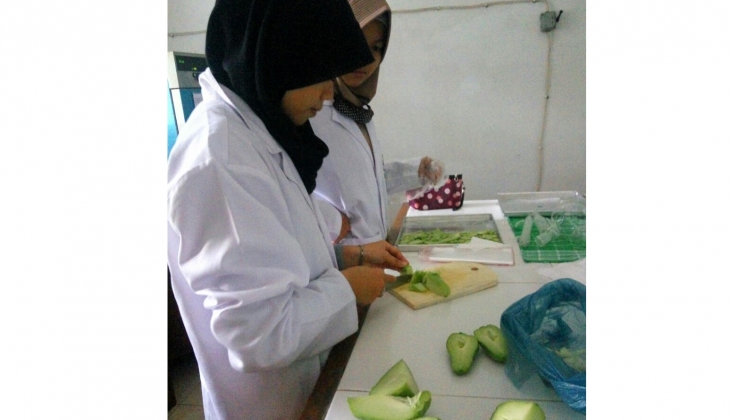Update on the Latest Research on Nutritional and Pharmaceutical Research on Mirlitons (Chayote)
By Lance Hill (lance@mirliton.org)
Many a child grew up in Louisiana hearing the imperative, “Eat your mirlitons” back when the vegetable was a backyard staple like fig and pecan trees. As we discovered that we had use to our own long-lost Louisiana heirloom variety to have success, home-grown mirlitons have become more a part of our diet. But modern science is discovering that mirlitons are not only a natural and inexpensive food: they also have miraculous pharmaceutical and nutritional qualities. They are heart-healthy, help resist cancer, and cure hypertension.
The ancient Mayans long understood the medicinal qualities of chayote (the original name for Mirlitons). They used concoctions of it as a diuretic and to treat toxemia. Elsewhere in the world, natural healers found other uses for the squash. An Italian researcher one told me that in Italy the fresh fruit is sliced in half and applied to cuts because of the numbing effect of mirliton sap. New science is rapidly building on these insights. (Keep in mind that all these experiments use extracts of raw leaves, shoots, and fruit, so they may not apply to cooked fruit.)
Here are some links to popular and technical research. All these links have been tested and though you may get a virus warning for some of the pdfs, they sites are safe for your computer. Some of these technical articles are complex, but I think people like seeing the way scientists are testing exciting ideas in this field.
Article on Mirliton/Chayote juice as good for high-blood pressure.
New varieties of Chayote had “anti-proliferative” effect on cervical cancer
Varieties of Chayote have possible anti-cancer qualities
Chayote Juice has curative effects
Chayote shrinks certain skin cancers (melanomas)
Scientist use micro-cuttings to preserve genetic lines of chayote

Students preparing chayote for cancer experiment in Indonesia